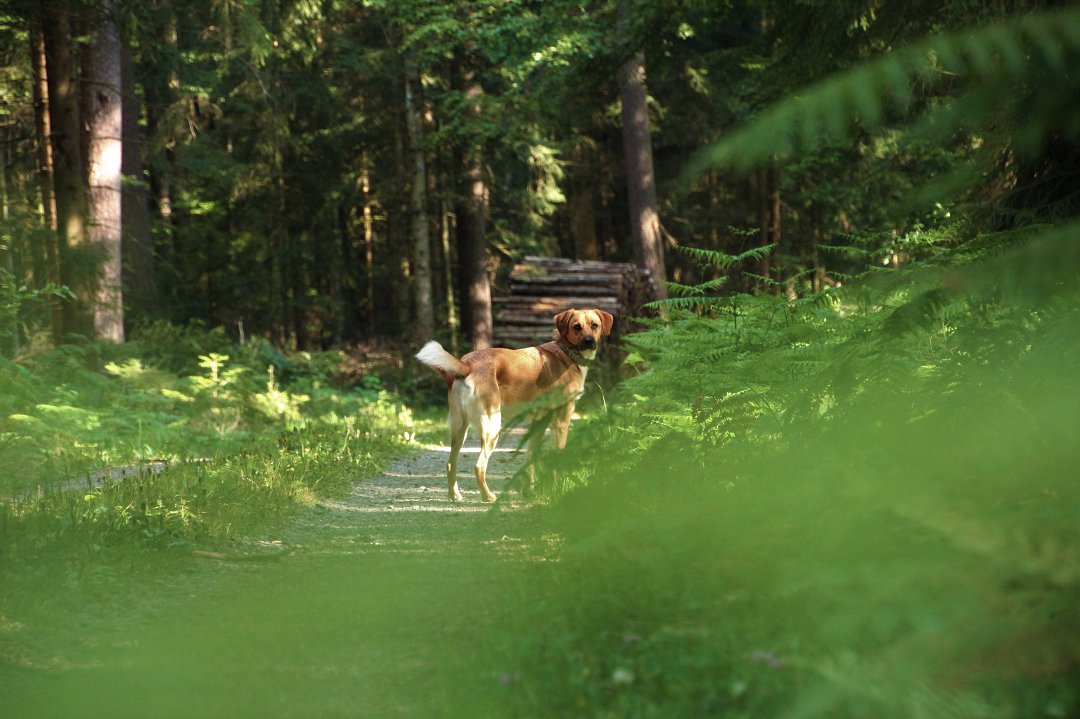Table of Contents
- 1 Introduction: Understanding the Importance of Proper Nutrition for Beagles
- 2 Essential Steps for Caring for a Malnourished Beagle
- 3 Nourishing Diet and Care Tips to Nurse Your Beagle Back to Health
- 4 FAQs About: How to Care for a Malnourished Beagle
- 4.1 Can I feed my malnourished beagle regular dog food?
- 4.2 How can I help my malnourished beagle gain weight?
- 4.3 Is it necessary to consult a veterinarian for a malnourished beagle?
- 4.4 How often should I feed my malnourished beagle?
- 4.5 Can exercise help in the recovery of a malnourished beagle?
- 4.6 How can I monitor the recovery progress of my malnourished beagle?
Introduction: Understanding the Importance of Proper Nutrition for Beagles
Are you concerned about the health and well-being of your beloved Beagle? If you’re searching for information on how to care for a malnourished Beagle, you’ve come to the right place. Proper nutrition plays a vital role in the overall health and happiness of our furry friends, and Beagles are no exception. In this article, we will guide you through the essential steps to care for a malnourished Beagle, helping you understand the significance of a nourishing diet and providing tips to nurse your Beagle back to health. So, let’s dive in and discover the secrets to a happy and healthy Beagle!
Proper nutrition is crucial for a Beagle’s well-being, as it directly impacts their energy levels, immune system, and overall vitality. A malnourished Beagle may experience a range of health issues, including weight loss, weakened immune system, and lack of energy. To help your furry friend regain their strength, it’s essential to provide them with a balanced diet that meets their specific nutritional needs. In the next section, we will explore the essential steps for caring for a malnourished Beagle, including consulting with a veterinarian, focusing on weight gain, and considering supplements to support their recovery. So, let’s continue our journey towards nursing your Beagle back to health!
Essential Steps for Caring for a Malnourished Beagle
When caring for a malnourished beagle, it is crucial to follow a series of essential steps to ensure their health and well-being. These steps include:
1. Consult with a Veterinarian
Before embarking on a care plan for a malnourished beagle, it is essential to consult with a veterinarian. A professional will be able to assess the dog’s condition and provide specific guidance tailored to their individual needs. They can determine the underlying causes of malnutrition and address any potential health issues.
2. Create a Feeding Schedule
Establishing a regular feeding schedule is vital to ensure the beagle receives consistent nourishment. Divide their daily food intake into several small meals throughout the day to aid digestion and prevent overeating. Be sure to choose high-quality dog food that is appropriate for their age, size, and specific nutritional needs.
3. Gradually Increase Food Intake
To avoid overwhelming the beagle’s digestive system, it is important to gradually increase their food intake. Start with small portions and slowly increase the quantity over time. This allows their body to adjust and prevents gastrointestinal discomfort.
4. Incorporate Nutrient-Dense Foods
In addition to regular dog food, incorporating nutrient-dense foods can help with the beagle’s recovery. Consider adding lean proteins, such as chicken or turkey, to their meals. These proteins provide essential amino acids for muscle repair and growth. Additionally, include fruits and vegetables that are safe for dogs, like carrots or blueberries, to provide vitamins and minerals.
5. Provide Supplements if Recommended
Depending on the beagle’s specific nutritional needs, the veterinarian may recommend supplements. These supplements can aid in weight gain and provide additional vitamins and minerals that may be lacking in their diet. However, it is crucial to consult with a professional before introducing any supplements to ensure they are safe and appropriate for the dog’s condition.
6. Monitor Weight Gain and Overall Health
Regularly monitor the beagle’s weight gain and overall health to track their progress. Weigh them weekly and keep a record to ensure they are gaining weight at a healthy and steady pace. Observe their energy levels, coat condition, and appetite as indicators of their overall well-being.
By following these essential steps, you can provide the necessary care and nutrition to nurse your malnourished beagle back to health. Remember to consult with a veterinarian, gradually increase food intake, incorporate nutrient-dense foods, and monitor their progress regularly. With proper care and attention, your beagle will be on the road to recovery in no time.
Next, let’s explore the importance of a nourishing diet and additional care tips to further support your beagle’s journey to health.
Nourishing Diet and Care Tips to Nurse Your Beagle Back to Health
When caring for a malnourished beagle, providing a nourishing diet and proper care is crucial for their recovery. Here are some tips to help you nurse your beagle back to health:
1. Consult a Veterinarian
Before making any changes to your beagle’s diet or care routine, it’s important to consult a veterinarian. They will assess your dog’s condition and provide specific recommendations tailored to their needs. A veterinarian can also determine if there are any underlying health issues contributing to the malnourishment.
2. Focus on High-Quality Nutrition
A well-balanced diet is essential for a malnourished beagle’s recovery. Choose a high-quality dog food that is specifically formulated for weight gain and recovery. Look for options that are rich in protein, vitamins, and minerals. Avoid foods with excessive fillers or artificial additives.
3. Consider Supplements
In some cases, your veterinarian may recommend supplements to support your beagle’s recovery. These supplements can help provide additional nutrients and aid in weight gain. Common supplements for malnourished dogs include omega-3 fatty acids, probiotics, and multivitamins. However, it’s important to follow your veterinarian’s guidance and not administer any supplements without their approval.
4. Feed Frequent Small Meals
Instead of feeding your beagle one or two large meals, divide their daily food intake into several smaller meals. This approach helps prevent overwhelming their digestive system and allows for better nutrient absorption. Aim for at least four to six small meals throughout the day.
5. Monitor Weight Gain
Regularly monitor your beagle’s weight to ensure they are making progress. Weigh them once a week and keep a record of their weight. Gradual weight gain is ideal, so consult your veterinarian if you notice any sudden changes or if your beagle is not gaining weight as expected.
6. Provide Adequate Hydration
Proper hydration is crucial for your beagle’s overall health and recovery. Make sure they have access to fresh water at all times. If your beagle is not drinking enough water, consider adding low-sodium chicken or beef broth to their meals to encourage hydration.
7. Encourage Exercise
While it’s important to provide rest and recovery for a malnourished beagle, gentle exercise is also beneficial. Take your beagle for short walks or engage them in low-impact activities to stimulate their appetite and improve muscle tone. However, avoid excessive exercise or strenuous activities that may cause fatigue.
By following these nourishing diet and care tips, you can help nurse your malnourished beagle back to health. Remember to consult your veterinarian throughout the recovery process to ensure the best possible care for your furry friend.
FAQs About: How to Care for a Malnourished Beagle
Can I feed my malnourished beagle regular dog food?
While regular dog food can be a part of their diet, it is important to consult with a veterinarian to determine the specific nutritional needs of your malnourished beagle. They may require a specialized diet to aid in their recovery.
How can I help my malnourished beagle gain weight?
To help your malnourished beagle gain weight, gradually increase their food portions and frequency. Opt for high-quality dog food that is rich in protein, vitamins, and minerals. Additionally, consider incorporating supplements recommended by your veterinarian to support healthy weight gain.
Is it necessary to consult a veterinarian for a malnourished beagle?
Yes, it is crucial to consult a veterinarian when caring for a malnourished beagle. They will assess your dog’s condition, provide guidance on proper nutrition, and recommend any necessary supplements or medical treatment to aid in their recovery.
How often should I feed my malnourished beagle?
Feeding frequency will depend on your malnourished beagle’s specific needs. It is generally recommended to divide their daily food intake into smaller, frequent meals to aid in digestion and nutrient absorption. Consult with your veterinarian to establish a feeding schedule that suits your dog’s recovery plan.
Can exercise help in the recovery of a malnourished beagle?
While exercise is beneficial for overall health, it is important to introduce physical activity gradually for a malnourished beagle. Start with short and gentle walks, gradually increasing the duration and intensity as their strength improves. Always monitor their energy levels and consult with your veterinarian for appropriate exercise recommendations.
How can I monitor the recovery progress of my malnourished beagle?
Regular monitoring of your malnourished beagle’s weight, body condition, and overall health is essential. Keep track of their weight gain, observe their energy levels, and note any changes in their coat or appetite. Regular check-ups with your veterinarian will also help assess their progress and make any necessary adjustments to their care plan.






Leave a Reply